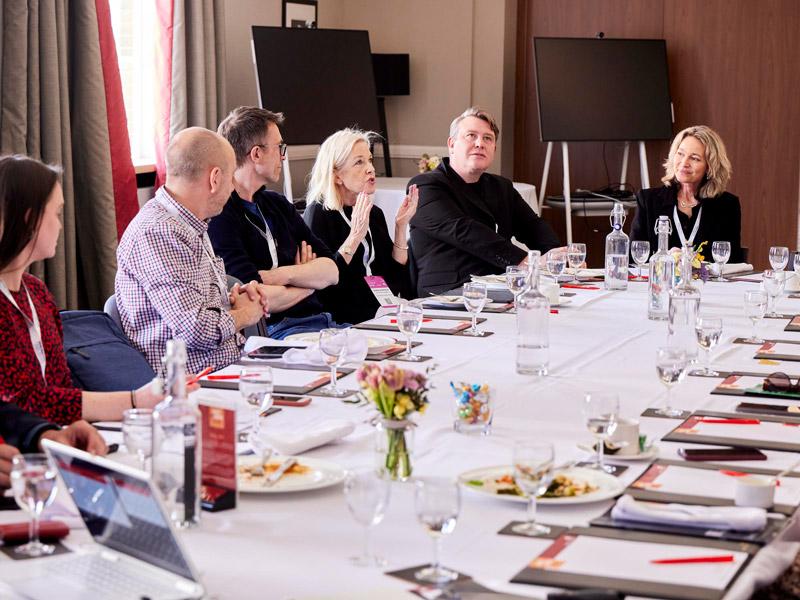
Successful digital transformation needs top-to-bottom buy-in

Universities must manage the introduction of new digital systems and technological developments with care to ensure change is successful. During a round-table discussion at a THE Digital Universities UK 2023 round table, held in partnership with Anthology, the panel identified key components of a successful digital transformation strategy. These were a unified approach, buy-in from all users, and consultation with students.
Student success needs to be at the heart of digital transformation, the panel agreed. Involving students in the planning of new systems is a necessary practice, said Lisa Harris, director of digital learning at the University of Exeter. “You suddenly connect with the reason you’re doing these things in the first place,” she said.
“Having student engagement and involvement in projects from the outset is really important,” said Sara de Freitas, director of the Digital Futures Institute at the University of Suffolk. “You could be spending millions and millions on something which is not actually having a positive impact on the student experience.”
Software solutions such as unified systems and predictive modelling were discussed, but the human element of implementing these solutions was identified as a key consideration. “What comes first? The infrastructure or the vision and the desire to make something happen?” asked Stephanie Marshall, vice-principle of education at Queen Mary University of London. She said a common challenge is getting all staff and departments working together. “Vision is important because otherwise you get a lot of fragmentation,” said de Freitas. “It may not be a vision you use forever but at least having some sort of structure allows you to understand the touchpoints, how they work and what you might do,” she said.
Staff stung by previous difficult transitions can become closed off to the idea of further change, the panel heard. “When people hear there’s more change coming, they just expect it to not go well and to be difficult,” said Tom Wright, director of digital student experience at the University of Lincoln.
This fatigue and fear is understandable, said de Freitas. “There have been some very poor implementations of technologies,” she said. “A little-by-little approach is the only way,” she said, adding that she had experienced positive digital transformations and, if introduced correctly, the process can lead to successful buy-in. “Everyone has to go through that process and once they see how exciting it can be, what we can do and how brilliant the student experience is, then they’re really on board.”
Daniel Wells, director of consulting and implementation services at Anthology, said he advocates for a “bottom-up” approach and starting with the administrators when planning a system. “I want to speak to the junior people that are having to do the different things within the institution. That then gets fed up the chain and you can then start to get the buy-in very early on,” he said.
Some seismic shifts in structures and mindsets will need to take place for a successful digital transformation, the panel agreed. “The technology is there and foundationally able to support everything from an education standpoint,” said Heidi Holdsworth, account executive at Anthology. “But the institutions themselves need to somehow break down those and flatten the silos that they created.”
The panel:
- Ale Armellini, dean of digital and distributed learning, University of Portsmouth
- Graham Bell, digital director of education, Cranfield School of Management
- Sam Brenton, director of online education, University of London
- Sara de Freitas, director of the Digital Futures Institute, University of Suffolk
- Daniel Falls, director of consulting and implementation services, Anthology
- Lisa Harris, director of digital learning, University of Exeter
- Heidi Holdsworth, account executive, Anthology
- Margaret Korosec, dean for digital and online learning, University of Leeds
- Becky Lewis, director of admissions and transitions officer, School of Biological Sciences, University of East Anglia
- Stephanie Marshall, vice-principle of education, Queen Mary University London
- Sam Nolan, deputy director of academic excellence, Durham University Centre for Academic Development
- Ashton Wenborn, branded content editor, Times Higher Education (chair)
- Tom Wright, director of digital student experience, University of Lincoln
Find out more about Anthology.

